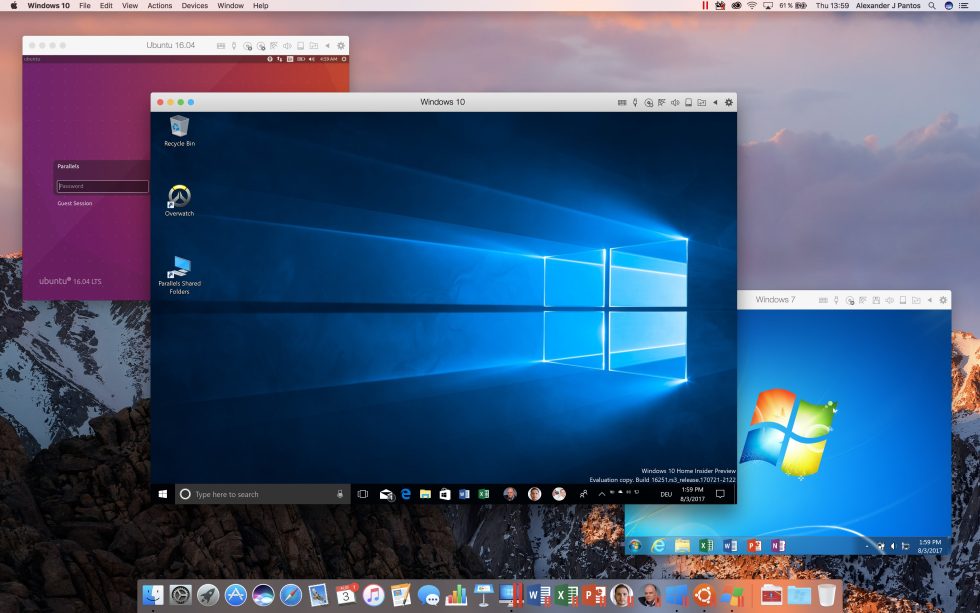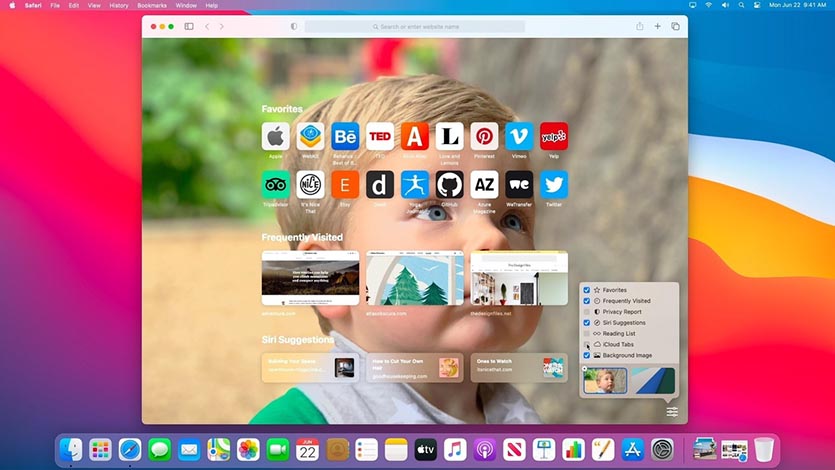MacOS 11 Big Sur. Parallels Desktop version 10.10 or later 10.11 or later 10.12 or later 10.13 or later 10.14 or later 10.15 or later 11.0 or later. Parallels Desktop 16 Parallels Desktop 15. Parallels Desktop 14. Parallels Desktop 13. I learned from Parallels forum that the problem was caused by version check of Parallels. The solution is first set the environment variable 'SYSTEMVERSIONCOMPAT=1', and then use command 'open -a 'Parallels Desktop' ' in terminal to run PD. Now PD15 can start.

Nov 13, 2020 macOS 11 Big Sur. Parallels Desktop version 10.10 or later 10.11 or later 10.12 or later 10.13 or later 10.14 or later 10.15 or later 11.0 or later. Parallels Desktop 16 Parallels Desktop 15. Parallels Desktop 14. Parallels Desktop 13. Parallel Desktop 15.1.5 does not work with OS Big Sur. Don't ever upgrade to Big Sur unless you want to purchase a new license for Parallels 16. I don't think the parallels developers even know how to design an update for version 15 that will make it work. Just can't be done apparently.
Join Transform 2021 this July 12-16. Register for the AI event of the year.
As Apple’s Mac computers begin their two-year transition from Intel- to Apple-developed CPUs later this year, one feature that’s going away is Boot Camp — the Mac’s ability to boot directly into Windows and run PC apps natively. But Corel’s Parallels Desktop will still be there to let Mac users run Windows, and in this year’s version 16, it will thankfully be faster, more compatible, and easier to use than ever.
Like Parallels Desktop 15, version 16 is an emulator that allows users to load a complete operating system or individual apps within macOS, treating them as windows within the Mac environment. Once again, high-end Business, mid-range Pro, and regular Standard versions are available. With the latest Business version of Parallels Desktop, an IT department can create, deploy, and remotely manage a profile-customized Windows system that Mac users download in a compact file size and expand on their own machines.
A simpler Pro version includes the file-compacting feature used to more easily transfer virtual machines between computers, achieving as much as 20 times compression for Linux installs and 75% faster Linux git status executions. The standard version includes a manual Free Up Disk Space feature with archiving and space reclaiming options.
All three versions of Parallels Desktop 16 include significant 3D graphics improvements that let a wider range of PC, Linux, and even Mac apps run in emulated mode. The new release expands beyond the 200,000 Windows apps already supported in Parallels Desktop 15, adding enhanced support for OpenGL 3.2 apps on Windows, OpenGL 3 on Linux, and Metal 3D apps when running macOS Big Sur in a virtual machine. Collectively, the graphics updates give Mac users access to interior design, molecular modeling, and other PC apps that wouldn’t open under prior Parallels Desktop releases. Users with AMD Radeon graphics cards will also see up to 20% faster performance, though Macs’ more common Intel graphics chips won’t see similarly obvious gains.
Under the hood, version 16 has completely replaced the prior third-party system extensions with Apple’s Hypervisor, a massive task that apparently took the equivalent of 25 human-years of effort but results in a Big Sur-compliant, smoother experience for users. Corel’s elimination of deprecated kernel extensions in favor of Big Sur frameworks means Desktop will no longer have to ask for special passwords and permissions during installation and part of the virtualization will rely on Apple’s own code. At the same time, the software will support more USB devices, enable multitouch zoom and rotate gesture support in Windows apps, and benefit from other performance enhancements.
Some improvements will be in the speed department, including Desktop launching twice as fast, 17% faster Windows startups and shutdowns, 20% faster Windows resumes, and 16% faster Windows downloads. Support for running Windows in “travel mode” extends a Mac laptop’s battery life by 10%, including disabling battery-chomping Windows updates while on the road. An enhanced Windows auto-pause feature can freeze the OS after the user’s choice of inactivity periods — ranging from 10 seconds up to one or more minutes — further extending battery life.
Desktop 16 also includes a number of cosmetic updates, including redesigned internal icons that match Big Sur’s and carryovers of native Mac folder and file icons in Windows when accessing OS-shared files. In the quality-of-life department, Corel has made Windows even easier to set up by removing a mid-install dialog box that could pause installations for no good reason. It has also added a “reclaim space on shutdown” feature that automatically reduces the virtual machine’s footprint when it’s not being used.
Parallels Desktop will be able to run macOS Big Sur within a virtual machine the day Apple’s OS officially launches, and any issues will be resolved in a rapid update. Desktop 16’s support for Big Sur as a host OS will come shortly after Big Sur is released to the public. Corel is including complimentary subscriptions to both the remote computer screen-sharing tool Parallels Access 6 and the Parallels Toolbox 4 utility grab bag as perks for Desktop users.
The standard Desktop edition costs $100 for a perpetual license or $80 for an annual subscription, with the Pro and Business editions each going for $100 per year as subscriptions. Prior users of the standard edition can upgrade to a perpetual version 16 license for $50 total or a new Pro subscription for $50 per year.
VentureBeat
 VentureBeat's mission is to be a digital town square for technical decision-makers to gain knowledge about transformative technology and transact.Our site delivers essential information on data technologies and strategies to guide you as you lead your organizations. We invite you to become a member of our community, to access:
VentureBeat's mission is to be a digital town square for technical decision-makers to gain knowledge about transformative technology and transact.Our site delivers essential information on data technologies and strategies to guide you as you lead your organizations. We invite you to become a member of our community, to access:- up-to-date information on the subjects of interest to you
- our newsletters
- gated thought-leader content and discounted access to our prized events, such as Transform 2021: Learn More
- networking features, and more
Apple has at last released macOS Big Sur! First previewed at the Apple Worldwide Developers Conference in June 2020, and then finally released to the world in November 2020, macOS Big Sur has had the longest beta development cycle of any macOS release in recent history.
The silver lining: engineers at Parallels® used this time to work in lockstep with their Apple counterparts in an effort to ensure that users will have the best possible Parallels Desktop® experience once migrated to macOS Big Sur.

The greatest amount of Parallels engineering work came in response to a significant change in the underpinnings of macOS Big Sur. As a Mac user, you may have seen dialogs (like the one shown in Figure 1) when using macOS Catalina or macOS Mojave.
Parallels Desktop 15 Big Sur App
The change in the macOS necessitated the re-architecture of Parallels Desktop (seen in Figure 2).
While this figure illustrates what may appear to be a small change, it required the largest amount of engineering work in Parallels Desktop 16 and the equivalent of 25 man-years of engineering effort. This change means that even more of the performance and security of Parallels Desktop will be derived from Apple’s updates to the internal architecture of macOS going forward.
In addition to the work diagrammed in Figure 2, the Parallels engineers have added a number of new features to Parallels Desktop 16, and to bundled products Parallels Toolbox and Parallels Access, including:

- macOS Big Sur support
- 3D support in macOS VMs
Learn more about these features in Video 1.
Parallels Desktop 15 Big Sur Free
Parallels Desktop is ready for you when you decide to migrate to macOS Big Sur. Let us know in the comments when you will be upgrading, and then, how the migration went!
Parallels Desktop 15 Big Sur Pro
(C) 2020 Parallels International GmbH
